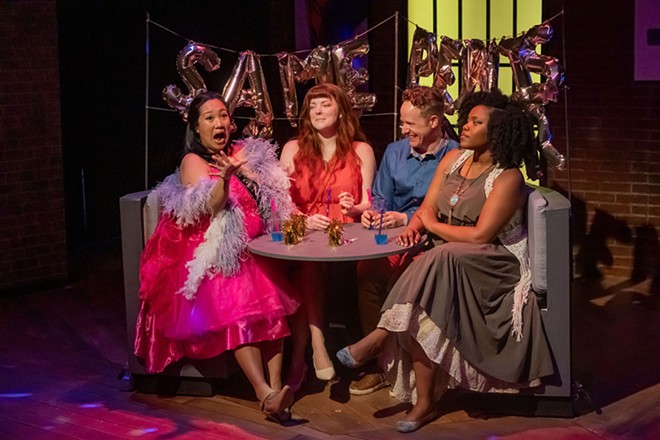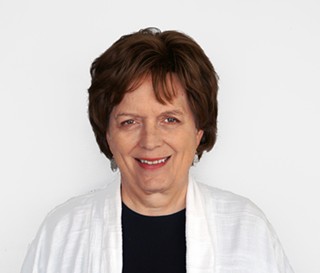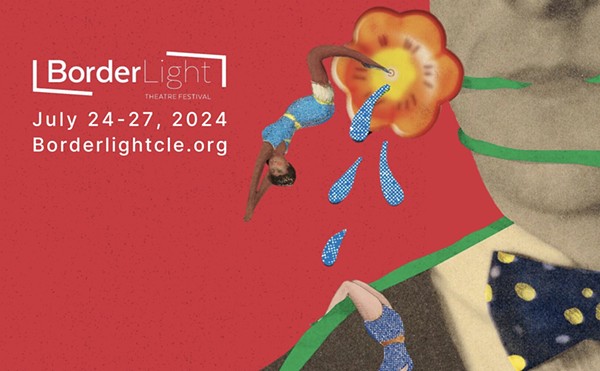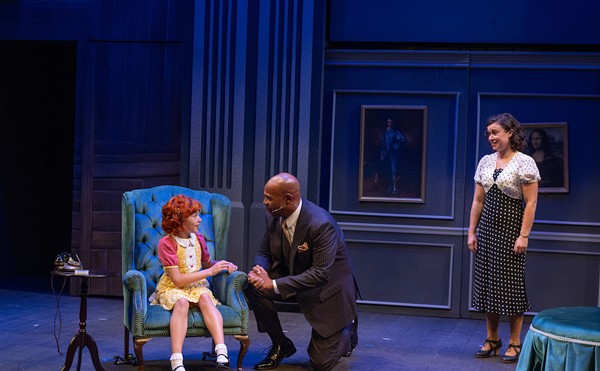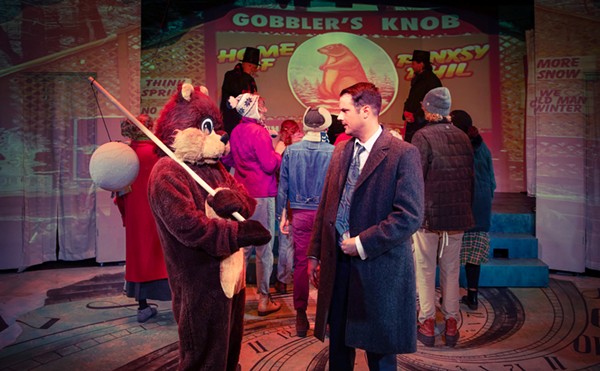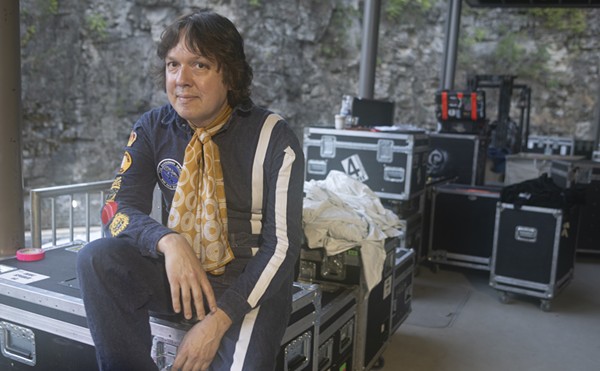Loneliness, Love and Too Much of One Character in 'Significant Other' at Dobama Theatre
Do gay men have it harder than straight women? The production fails to deliver a satisfying examination
By Christine Howey on Mon, Apr 29, 2024 at 8:53 am
[
{
"name": "Ad - NativeInline - Injected",
"component": "38482495",
"insertPoint": "3",
"requiredCountToDisplay": "5"
},{
"name": "Real 1 Player (r2) - Inline",
"component": "38482494",
"insertPoint": "2/3",
"requiredCountToDisplay": "9"
}
]
It's not unusual for a play to be centered around one character, but it's rare for that person to be the least interesting character in the piece. Yet that is what happens in Significant Other, now at Dobama Theatre.
Playwright Joshua Harmon places the 29-ish gay man Jordan in every scene even though there are ten, count 'em, ten other folks who show up, have names and speak lines. This focus on Joshua, who plinks one note of his desperately shallow persona throughout, gives the entire ensemble a big challenge.
Although this over-long production directed by Colin Anderson is loaded with witty zingers and a couple diverting performances, it feels like a hard slog from the start.
The premise is that the main character, Jordan, is a man who is finding it hard to find a partner— even though he's young, cute, healthy, has a great job in advertising, and lives in a cushy part New York City.
Smiling-on-the-outside Jordan is pals with three straight females: his best friend Laura (Katherine Nash), uninhibited Kiki (a spiky and amusing Kat Shy), and depressive Vanessa (Mary-Francis Miller). They enjoy their boozy nights out as a squad until time passes and one-by-one, the women get hooked up with men and the weddings start rolling in, accompanied by bachelorette parties and other related het-fests.
Desperate Jordan soon fixates on a stud co-worker named Will (an excellent, monosyllabic Michael Glavan). Jordan waxes steamily to Laura about every inch of Will's hot pecs and lats, which he observed at a local pool, with reveries that are spot-on, sexy and fun. But even though Jordan gets up the nerve to ask Will out to a movie, the relationship goes nowhere and is dropped by the playwright, an odd choice since Will seems intriguing.
Instead, we are immersed in multiple scenes of Jordan kvetching about his miserable life while he is compelled to attend a string of wedding to-dos even though they just deepen his sour mood. We understand that anyone can suffer from loneliness in the Big Apple, as well as anywhere else. But this script requires an agile, lively production to give the story shape and momentum.
A major problem is that the three women mentioned, along with Jordan's grandma Helene (Catherine Albers) whom Jordan visits now and then to keep grounded, are never given enough stage time and backstory to establish themselves as real people rather than cardboard cutouts.
Those women, all of whom are potentially more interesting than Jordan, are just there to clarify the playwright's opinion that straight folks have it easy when it comes to romantic relationships—all those weddings!—and gay people don't.
That's a mistaken stretch in two different directions: Gay people have been having monumental weddings for decades now, and lots of straight people are plenty lonely (a fact that you can observe in, perhaps, 50% of all the plays ever written).
All the male characters other than Jordan are handled by Glavan and Adam Rawlings, each of whom are triple cast. In the ever-present role of Jordan, the excellent actor Scott Esposito seems constrained. Many of his scenes feel repetitive (especially his repeated weepy scenes in the second act), and he almost always plays the emotion at hand rather than playing against it. This doesn't allow the audience to discover his mental state for themselves.
That difficulty comes to a head in the climactic scene when Jordan lashes out at Laura in a heated monologue that should be shattering but, because we never got to know either very well, just amounts to a lot of rapid-fire verbal histrionics that land with a thud.
The production is further hampered by Dobama's enormous stage, which scenic designer Richard Morris, Jr. wrangles with unsuccessfully, as have other designers in the past. Since the play is comprised of short scenes, the action follows pools of light that move from one small area to another, leaving the audience to peer through (or at) vast expanses of dark, empty stage. That creates an enervating visual overlay to the proceedings that it never shakes.
The twin downers of loneliness and depression are no laughing matter, especially in a 21st century world where young people are struggling to become who they really are. So, give credit to playwright Harmon for trying to use humor to look at that situation with compassion.
But this Dobama version wears its heart on its sleeve when that powerful organ should be kept inside. That's where it can pulse and power a story involving more fully realized characters—enabling the laughter to resonate as it should.
Significant Other
Through May 19 at Dobama Theatre, 2340 Lee Road, Cleveland Heights, 216-932-3396, dobama.org.
Subscribe to Cleveland Scene newsletters.
Follow us: Apple News | Google News | NewsBreak | Reddit | Instagram | Facebook | Twitter | Or sign up for our RSS Feed
Tags:
SCENE Supporters make it possible to tell the Cleveland stories you won’t find elsewhere.
Become a supporter today.
About The Author
Christine Howey
Christine Howey has been reviewing theater since 1997, first at Cleveland Free Times and then for other publications including City Pages in Minneapolis, MN and The Plain Dealer. Her blog, Rave and Pan, also features her play reviews. Christine is a former stage actor and director, primarily at Dobama Theatre...
Scroll to read more Arts Stories & Interviews articles
Newsletters
Join Cleveland Scene Newsletters
Subscribe now to get the latest news delivered right to your inbox.

